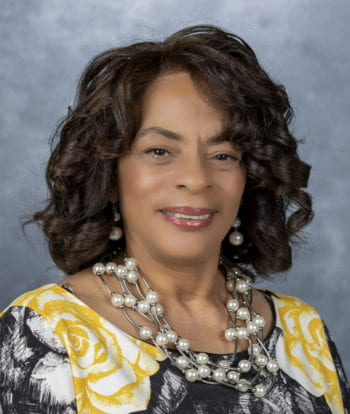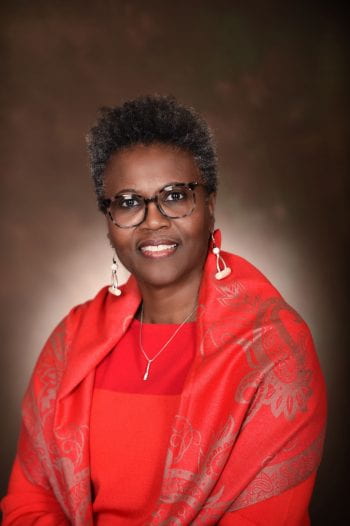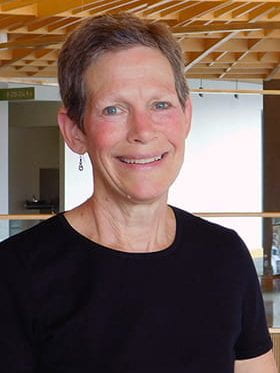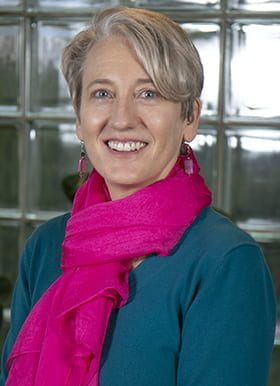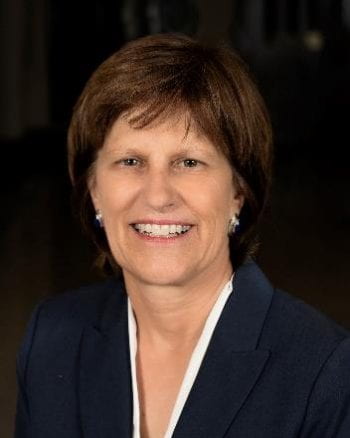As colleges and universities begin the new academic year, educators in social work and other human-service fields have new tools for equipping students with the knowledge needed to guide clients with financial problems.
The Center for Social Development (CSD) in the Brown School at Washington University recently released seven new lecture modules designed to teach students about financial capability and helping clients accumulate assets for financial stability.
The offerings expand the center’s collection of educational materials, which developed from collaborations with faculty partners at historically Black colleges and universities, Hispanic-serving institutions, Tribal colleges and universities, and other institutions.
“When we began this work, we were intentional about seeking out partners at historically Black colleges and universities, Hispanic-serving institutions, and Tribal colleges and universities,” said Gena Gunn McClendon, Codirector of CSD’s initiative on Financial Capability and Asset Building. “We felt it important that those voices be represented.”
Beginning in 2013, faculty partners and their students tested classroom content on financial capability and asset building (FCAB), providing feedback. The collaboration fueled a curriculum, a textbook, and additional educational resources, including the new modules.
“I began incorporating financial content into social work classes, BSW and MSW classes, to introduce students to issues related to families that are referred to social service agencies for various services; however, once they began the work with the client system, more times than not the client family system is experiencing financial difficulty. Little to my surprise, students started asking me, ‘Why haven’t we learned about this before?’ We work with clients that need help with their finances and with navigating financial systems all the time. Students embraced the skills when they saw how pivotal these issues are in the lives of their clients,” said Jenny L. Jones, Dean and Professor of the Whitney N. Young Jr. School of Social Work at Clark Atlanta University. Jones and students at the Whitney Young School.
Jones added, “This knowledge makes them better social workers and enhances the impact they can make on behalf of vulnerable people.” Jones piloted the curriculum in classes and continues to provide guidance in the development of CSD’s FCAB offerings.
Margaret Sherraden explained the impetus for the work: “Few social workers are trained to help those they serve navigate the financial landscape or manage financial affairs, but vulnerable people regularly turn to us for guidance.” Sherraden is a Research Professor in Washington University’s Brown School and Professor Emerita with the University of Missouri–St. Louis School of Social Work.
“With the textbook and these new modules,” she added, “we hope to support the next generation of helping professionals in preparing for the practice demands they will encounter.” She is one of the scholars leading the center’s work to create these tools.
Julie Birkenmaier, who has also leads the center’s work in this area, echoed Sherraden’s comments. “The new modules expand the options available for educators who want to introduce their students to financial capability practice,” she said. Birkenmaier is a professor in Saint Louis University’s College for Public Health and Social Justice and a CSD Faculty Director.
“This collection augments content in the FCAB textbook and is part of a broad effort to bring financial practice back into social work education, infuse financial content into existing courses, and generate new courses with that content,” said Lissa Johnson, CSD’s Associate Director and the Codirector of the FCAB initiative. She managed the development of the teaching modules.
She added, “Students were an important part of this effort. They affirmed the importance of learning the content as part of their professional training and helped to identify key concepts and ways to present the material that would hold students’ attention.”
Funding for the center’s work on the curriculum has come from the Arthur Vining Davis Foundations, Wells Fargo Advisors, and Equifax Foundation. The National Endowment for Financial Education funded the development of the modules.
In addition to providing introductory material on FCAB, the modules address specific subjects that often come up in work with vulnerable populations:
Module 1: What is FCAB?
Module 2: History of Financial Capability and Asset Building in America: Asset Stripping, Borders, and Autonomy
Module 3: FCAB and the Role of Social Work
Module 4: Financial Capability in Vulnerable American Families: A Portrait
Module 5: Financial Institutions, Products, and Services
Module 6: Consumer Credit and Credit Building
Module 7: Consumer Debt, Problem Debt, and Debt Negotiation
Although each can be used as a standalone resource, the modules are designed to supplement “Financial Capability and Asset Building in Vulnerable Households,” the 2018 textbook Sherraden and Birkenmaier authored with J. Michael Collins.
The modules use case studies from the textbook to bring to life common financial troubles and to illustrate effective approaches to improving financial well-being in minoritized and low-income families. Each module includes PowerPoint slides, detailed instructor notes, and references. The slides include exercises and study questions, as well as embedded links to videos, publicly available personal-finance tools, and other helpful websites.
CSD’s FCAB educational materials are already in use in courses offered through partner institutions, including the Brown School and the Saint Louis University School of Social Work. They have been adapted for use in Singapore, mainland China, and elsewhere. A new initiative is tailoring the content to train social workers in Africa.
All of the modules are free for download from CSD’s FCAB Educational Resources page. Additional resources may be found on the center’s YouTube channel.

